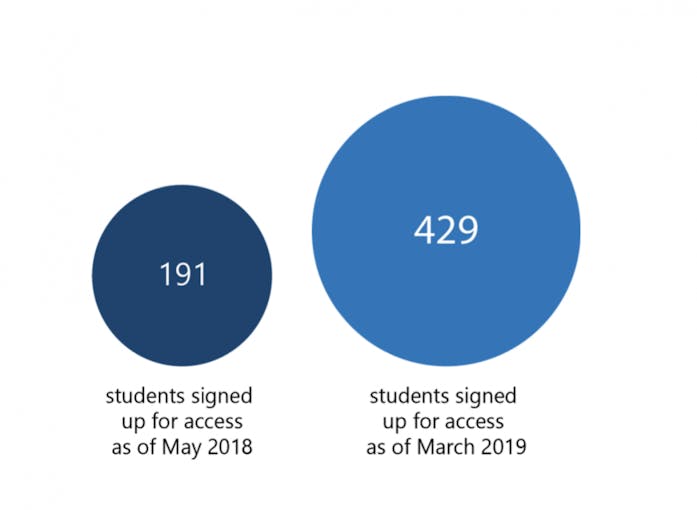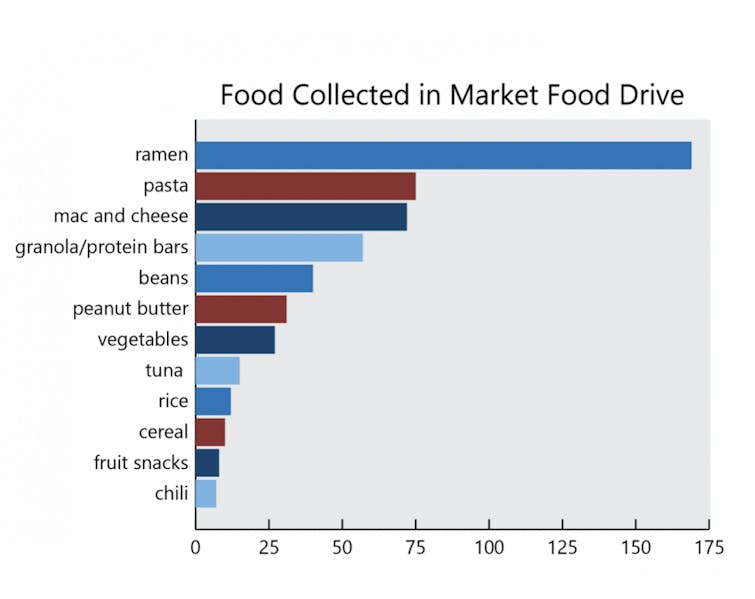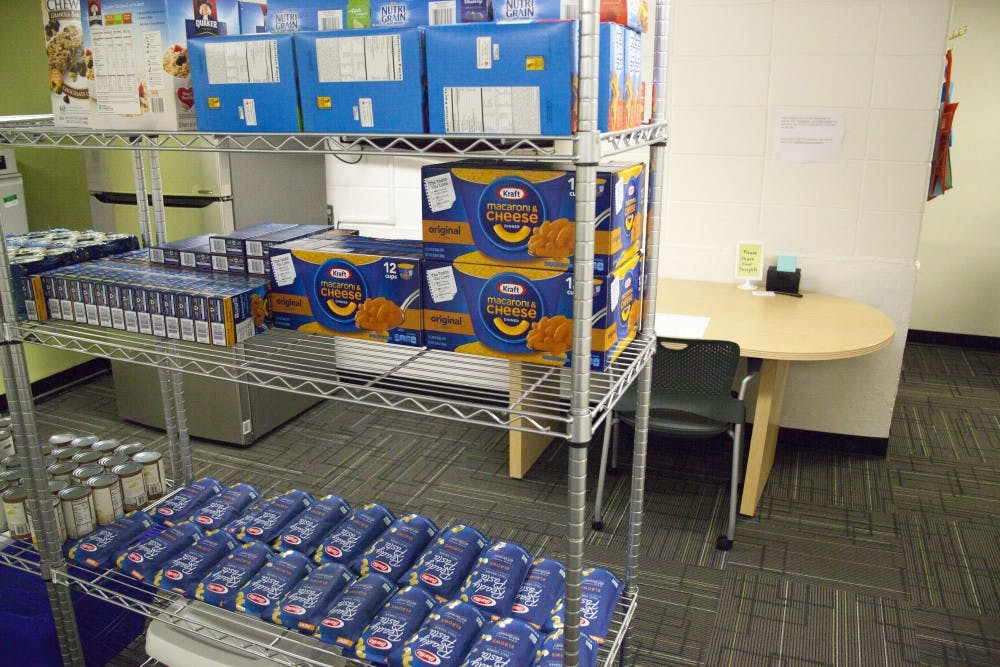This academic year saw a renewed focus on campus food, with student protests against the cost of AU’s proposed meal plans in February and the University’s decision to potentially cut ties with current provider Aramark.
But for Tony Hollinger, the director of military-affiliated student support and special initiatives in the Office of Campus Life, addressing students’ food needs has been a priority for years.
Hollinger runs AU’s food pantry, also known as The Market, which opened in fall 2017. While The Market is intended to combat food insecurity at the University by providing free non-perishable and fresh foods to students, some students say that AU must do more to address student needs.
“The food pantry is one of the most important projects I’ve ever worked on because it is focused on helping students in an area of need that impacts their daily well-being, their academic performance and again, their overall health,” Hollinger said in a 2017 interview.
While senior Elena Vernikos believes that The Market is a good step, there is still a lot that can be done about food insecurity on AU’s campus, she said.
“There has to be some dialogue put into place by the University to talk about this issue,” Vernikos said. “I think that when we have something that’s mandated, whether it be through class or student participation on campus where we have to talk about these issues, I think that can help a lot more people than we realize.”
Vernikos created the “Free Food AU” Facebook page, which has over 1,000 followers and posts about wherever there is free food offered on campus. She started the group after she experienced food insecurity and didn’t see many resources at the University.
While staying on campus during Thanksgiving break her freshman year, Vernikos said she could not find anything to eat as the Terrace Dining Room and other food options were closed.
“The way the University has closures with the food options on campus during breaks is extremely harmful to a lot of kids who have to stay,” Vernikos said.
Nickolaus Mack, a senior in the School of International Service, as well as The Eagle’s managing opinion editor, created the organization Campus Swipes to increase dialogue about food insecurity on campus.
Mack is involved in projects such as introducing a “basic needs clause” to professors’ syllabi that addresses food and housing insecurity on campus and directs students to campus resources, such as the Academic Support and Access Center.
“A food pantry isn’t a one-and-done solution and I think that everyone recognizes that,” Mack said.
How the pantry works
In its current setup, students can request access to the Market through an online form and are able to swipe their AU ID card to enter the space, which is located in the lower level of Letts Hall. It is open from 6 a.m. to 12 p.m. and 2 p.m. to 2 a.m. daily.
In a recent interview, Hollinger said The Market has achieved a good balance of being available to students who need it, but also being discreet. The number of students who requested access has increased from 191 students as of May 2018 to 429 as of March 2019, according to data collected by AU.
“The focus has remained the same, which is just to have a place where students can come with relative anonymity and find things that they need at their own selection,” Hollinger said. “It’s still based on trust and honesty and the student users being mindful of the other students’ needs as well as their own.”
But Jared Bedell, the president of AU’s Residence Hall Association, said most students who need The Market’s resources are not aware of it.
“I think one of the largest issues is the lack of knowledge of the food pantry,” Bedell said. “I think that they tried really hard to make it discreet, which was very considerate, but at the same time one of the negatives is that no one knows where it is.”

Vernikos said she has noticed that many of the items in the pantry can be unhealthy, as they are pre-prepared.
“Even though these students are hungry, that doesn’t mean they deserve to eat really unhealthy food,” Vernikos said. “That can contribute negatively to your academic performance. If you’re not eating the right thing, then you’re not going to be able to perform the best that you can.”
Hollinger has never received a note from a student saying they could not find something they needed, but he has received requests for certain dietary restrictions, such as gluten-free options. While the main source of donations for The Market comes from Capital Area Food Bank (AU spends a minimum of $750 annually to be a part of the organization’s Pantry Food Program), Hollinger estimates the Office of Campus Life spends an extra $100 on items once or twice per month.
“Once those demands are identified, then of course we can make sure we put those things there and normally they are used pretty quickly afterwards,” Hollinger said.

The high cost but low quality of food that students can access goes beyond what the pantry could solve, Bedell said.
“I think that combines for a perfect storm for students who can’t afford to go off campus and buy their own groceries and can’t really eat much on campus with the meal plan,” Bedell said.
He said that RHA is working to suggest ideas to the new food provider, such as EagleBucks being accepted at other grocery stores besides Whole Foods. Other ideas include providing more EagleBucks to students who identify as food insecure.
Vernikos said the efforts of people who are working towards solving food insecurity on campus should not go unnoticed.
“But, at the same time, for a university with the endowment that American University has, for a university with such a high tuition like AU, there is no excuse for us to not have a fully stocked pantry with [healthy] food for students,” Vernikos said.
Note: Nickolaus Mack, who is included in this article, is the managing editor of opinion for The Eagle. He was not involved in the reporting, editing or writing of this article.
This article originally appeared in The Eagle's April 2019 print edition.





